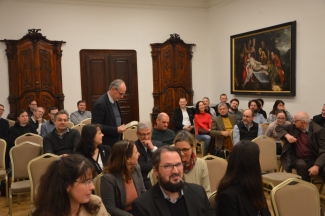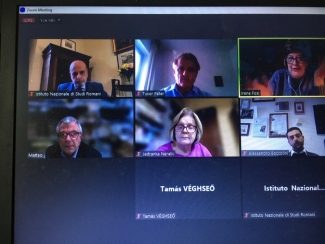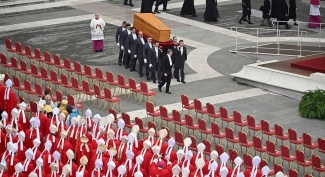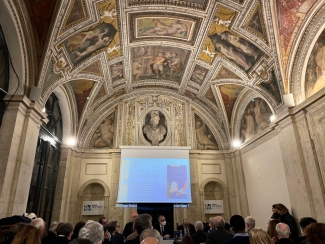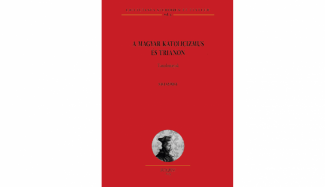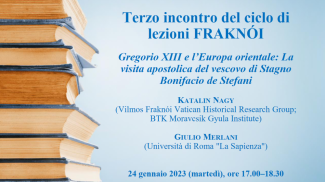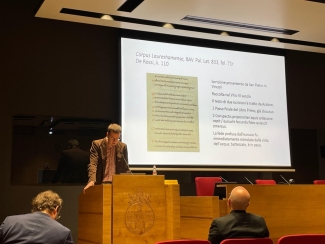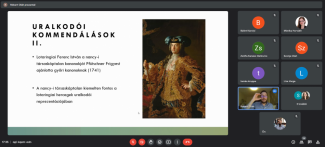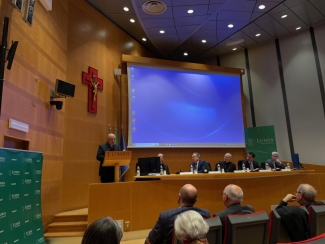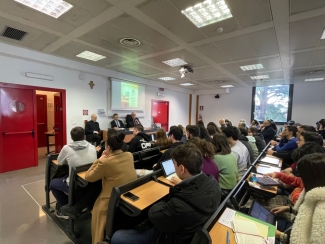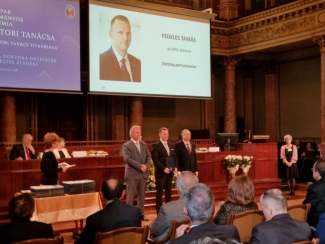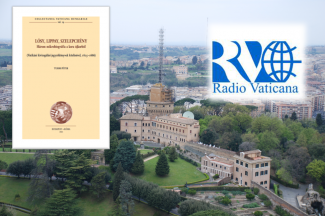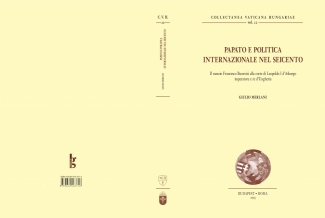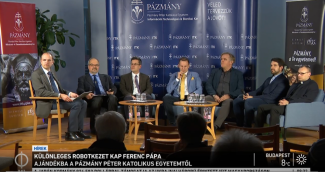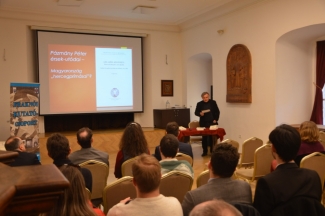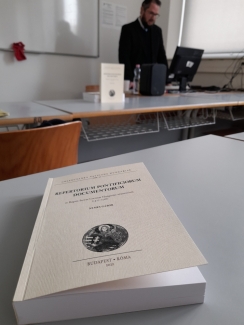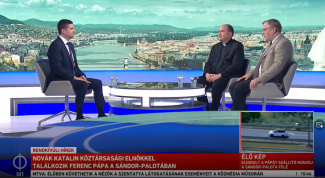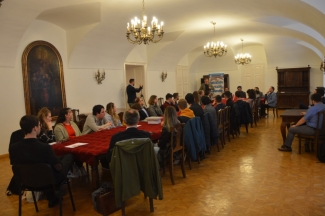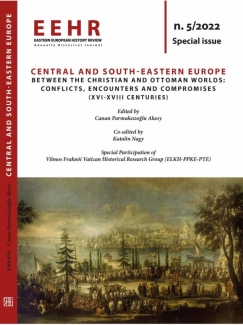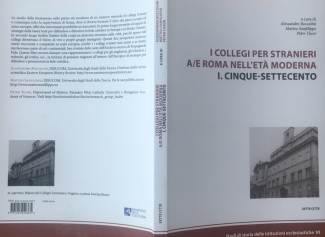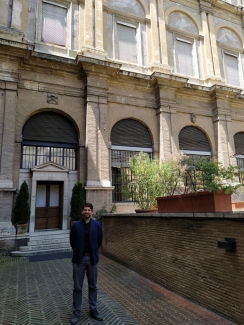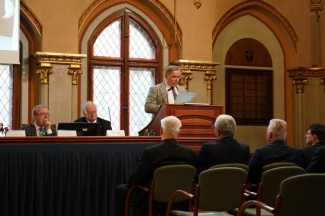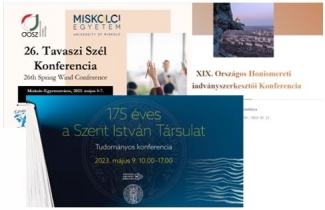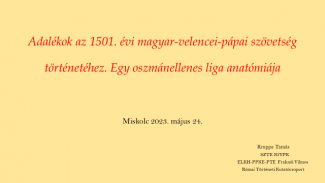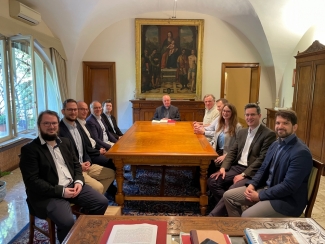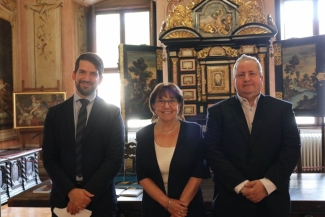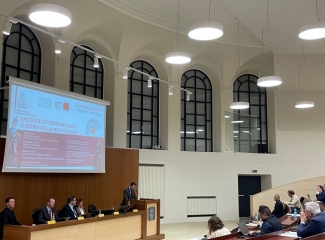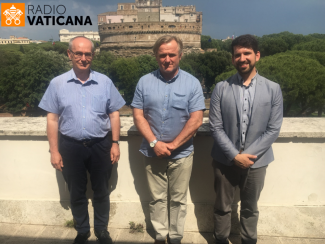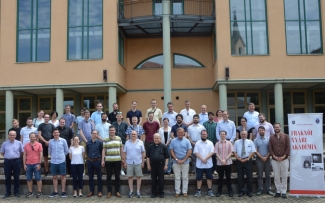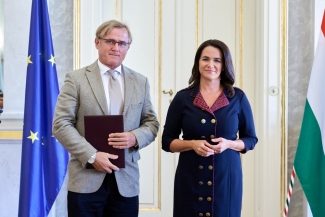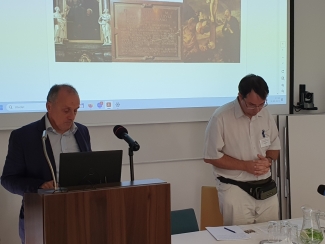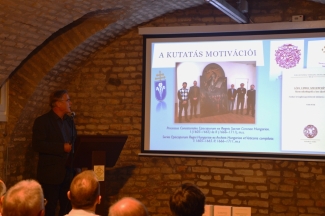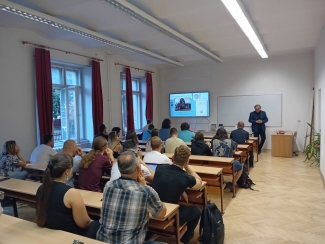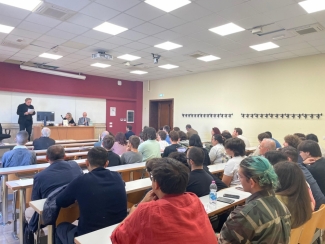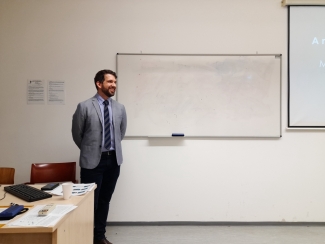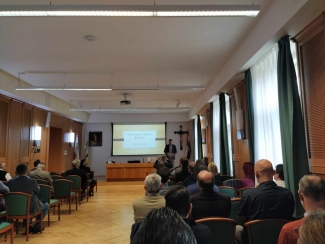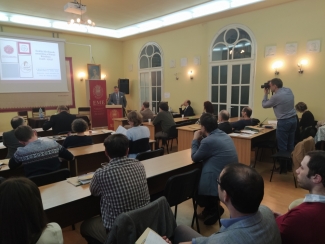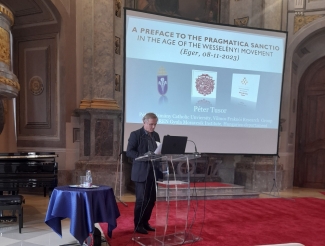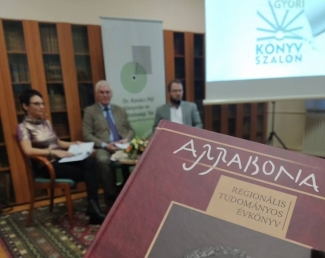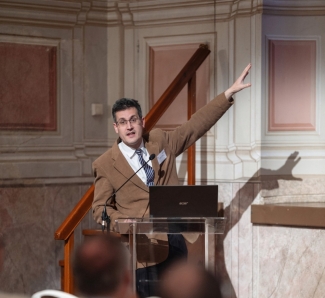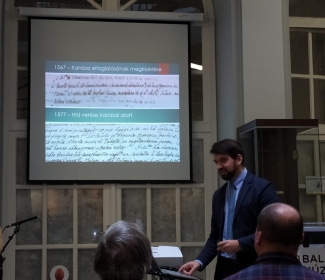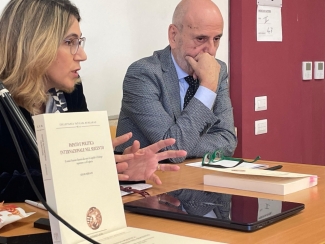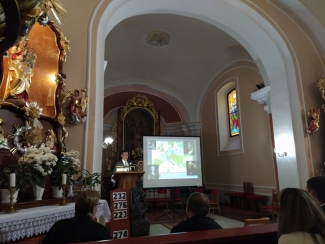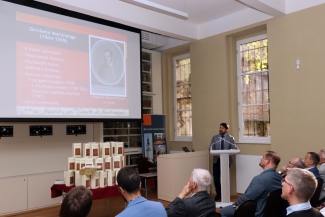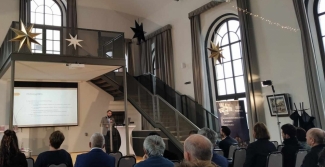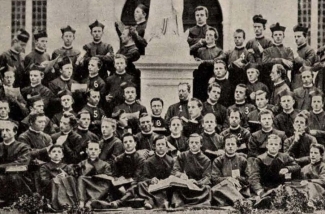On 13 December 2022, the latest volume of the Collectanea Vaticana Hungariae (CVH I/21) series, Hungary and the Holy See of Rome III, was presented in the Bogdánffy Szilárd Hall of the Central Seminary in Budapest.
At the beginning of the event, Péter Tusor, head of the Fraknói Research Group, emphasised the symbolic significance of the event being held at this venue, as it was here that the Monumenta Vaticana Hungariae of Vilmos Fraknói was once launched with the collaboration of Cardinal Lajos Haynald Archbishop of Kalocsa. The publishing committee held its meetings in the same room of the seminary building between 1882 and 1892. Vilmos Fraknói had previously been a student of the institution for six years. The Fraknói Research Group aims to carry on this legacy through its research and publications. The head of the Research Group considered it important that the lectures of the VIII Fraknói Summer Academy, held at the beginning of August at the former Campus in Piliscsaba, were published in book form, along with other studies. In his short introduction, he also recommended the book. The book is dedicated to Kornél Szovák, professor at the Faculty of Fine Arts of the University of Péter Pázmány Catholic University and founding director of the Gyula Moravcsik Institute, on the occasion of his 60th birthday ("Exquisitae lucubrationes Cornelio Szovák amicabiliter dicatae").
He was followed by the Rector of the Seminary, Levente Balázs Martos, and the Dean of the Faculty of Fine Arts, Nándor Birher, who welcomed the guests and congratulated the celebrated. In their speeches, they both emphasized the importance of the basic research volumes published by the Fraknói Research Group, published by Gondolat Publishing House, and praised the activities of the Research Group.
Following the toasts, László Solymosi, Academician and Professor Emeritus of the ELTE, delivered Kornél Szovák's laudation.
After him, György Rácz, lecturer at the PPKE BTK, Deputy Director General of the Hungarian National Archives, took the floor to present the medieval studies of the volume. György Rácz said of the volume as a whole that the studies follow each other in close chronological order, with writings by Kornél Szovák's colleagues and former students appearing among the authors. Each study is supplemented by one, two or more source texts in the appendix.
András Forgó, former lecturer at PPKE BTK and current lecturer at University of Pécs, then took over the presentation of the other ten early modern, modern and recent writings in the volume.
Following the presentation of the book, Miklós Maróth, founding Dean of the Faculty of Fine Arts of the Péter Pázmány Catholic University, and President of the ELKH, addressed the participants. In addition to his greetings, he stressed that Péter Tusor and Kornél Szovák are also revealing newer and newer Vatican sources and involving them in academic research and Hungarian and international discourse, thus enriching the knowledge of Hungarian historiography.
Last but not least, Kornél Szovák expressed his thanks for the volume. He briefly looked back on his research and teaching career, remembering his teachers, colleagues and friends who have stood by him, worked with him and supported him in the past decades. Finally, he spoke of his students, many of whom have also made scientific achievements in the field of medieval studies.

